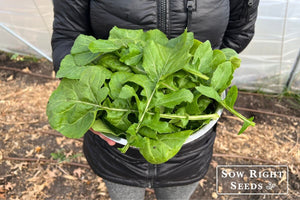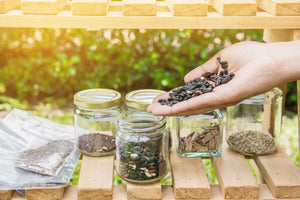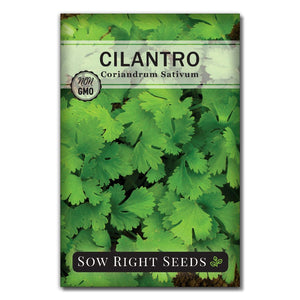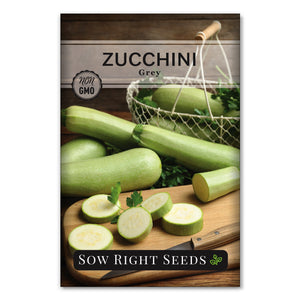Want Crispy, Tangy Dill Pickles? This Garden-to-Jar Recipe Works Every Time
RecipesThere’s no pickle as satisfying as one you made yourself from cucumbers you’ve grown in your garden. Sure, you might be able to pick up some incredibly delicious jars at your local farmer’s market, but they still won’t quite have that special something. The extra love and labor you’ve put into growing your cucumbers and dill is the secret ingredient that edges out all the others. Plus, you can always tweak your recipes to suit your taste.

Fresh Dill Pickle Recipe
We’ve got a fantastic traditional recipe for canning your dill pickles. Feel free to start with this basic recipe and be creative to make it your own. If you love garlic, add more! Make your dill pickles as spicy or mild as you like, and take notes so that next year, you can build on your successes.
If you don’t want to can, these also make excellent refrigerator pickles. Just skip the hot water bath and store them in the fridge for up to 6 weeks. They will retain a bit more of their crunch and cucumber flavor, but they don’t get quite as spicy as pickles that have been stored for months.
This recipe makes a lot of pickles, so you also may need to share with friends and family if you’re making quick pickles!

Ingredients for Dill Pickles:
Yield: About 6 Quarts of Pickles
12 pounds cucumbers
6 cups water
6 cups distilled white vinegar (5% acid)
1/2 cup pickling salt
18-24 cloves of garlic
6 bay leaves
6 heads of fresh dill blossoms or sprigs of fresh dill
30 black peppercorns (5 per jar, optional)
2 Tb dill seed
2 Tb mustard seed
1 t crushed red peppers (optional)
Pickle Making Instructions:
1. Prep Your Jars
Thoroughly wash 6 quart-sized canning jars and new lids in hot, soapy water, then sterilize for 10 minutes in boiling water.
2. Wash Fresh Ingredients
Wash your cucumbers well. Remove the blossom end and cut into spears, chips, or leave whole, depending on your preference.
Clean your dill blossoms or sprigs and make sure no bugs are hitching a ride.
3. Make the Brine
Prepare your brine by bringing water, vinegar, and salt to a boil to dissolve the salt.
4. Pack the Jars
While you wait for your brine to boil, pack your jars. In each sterilized jar, add:
- 1 dill blossom or sprig
- 5 black peppercorns
- 3-4 cloves of garlic
- 1 bay leaf
- Mix the remaining spices and evenly divide them among the jars, one teaspoon at a time.
Tightly pack your cucumbers up to the neck of the jar.
5. Add Hot Brine
Once the brine has come to a boil, carefully pull it over the pickles. A canning funnel can help with this process. Make sure to release any air bubbles. Leave about ½” space at the top of each jar to allow a vacuum seal to form during processing. Quickly add a lid and ring to each jar and tighten.
Refrigerator Pickles Option
- If you are making quick pickles, allow some time for cooling and then move your pickles to the fridge. They will keep for about 6 weeks.
Canning Instructions for Long-Term Storage
- If you are canning for long-term storage, process each jar in a water bath canner or pressure canner for 15 minutes and remove immediately. Do not over-process.
- Check each lid to make sure it seals properly with a slight indentation. Store all properly sealed jars in a cool, dry place for up to a year. If any jar’s lid doesn’t seal, simply move it to the refrigerator and enjoy those pickles immediately.

Choosing cucumbers for pickles:
If you’re making gherkins, pick cucumbers that are 1 ½ inches long. For regular dill spears, whole pickles, or chips, cucumbers that are around 4-6 inches should be perfect.
If you slice the cucumber and the seeds are already fully formed, you know that particular cucumber is too mature to make into a crisp dill pickle. The best texture comes from smaller fruits with immature seeds. If your cucumbers are too big, all is not lost, though! Use those larger, more mature pickles for bread-and-butter style pickles or to make relish instead.

Tips for Crisp Dill Pickles:
There are some simple and reliable ways to ensure firm pickles.
- Choose quality ingredients that are fresh for the crispiest pickles. This is good sense; soft cucumbers will make soft pickles.
- Remove the blossom ends of your pickles when canning. The blossom end has the enzymes that cause cucumbers to continue to ripen, so this step helps a lot.
- Cucumbers can be soaked in ice water for 4-5 hours before pickling to improve their firmness.
- Take care not to overprocess your pickles. Remove them from the canner immediately after 15 minutes of processing time.
- Use smaller pickles and pack them tightly.
Old fashioned pickling recipes may call for alum, but it does not help with quick-process pickles and can make your pickles bitter if you use too much. Similarly, adding grape or oak leaves is unnecessary once you’ve removed the blossom end. Pickling lime must be removed for safe pickles. The risk of botulism isn’t worth the trouble when there are better methods available. See this article for more details on safety concerns with lime and the National Center for Home Food Preservations FAQ for any other canning and safety questions.

Dill Pickle Recipe FAQs
How long do homemade dill pickles last?
Canned dill pickles last up to a year in a cool, dry place. Refrigerator pickles should be eaten within 4-6 weeks.
What kind of cucumbers are best for dill pickles?
Our favorite cucumber variety for pickles is National Pickling Cucumber. Use firm, small cucumbers about 4-6 inches long. Avoid overripe cucumbers with large seeds for the best results.
How do I make crisp pickles?
Soak cucumbers in ice water, trim the blossom ends, and don't overprocess.
Can I skip canning?
Yes! These make excellent refrigerator pickles.
Whether you love garlic-packed spears or tangy little chips, this traditional dill pickle recipe is endlessly customizable. Add chili flakes for heat, double the garlic, or omit the pepper.
Making your own pickles is a rewarding way to preserve your harvest—and your taste buds will thank you.








Leave a comment